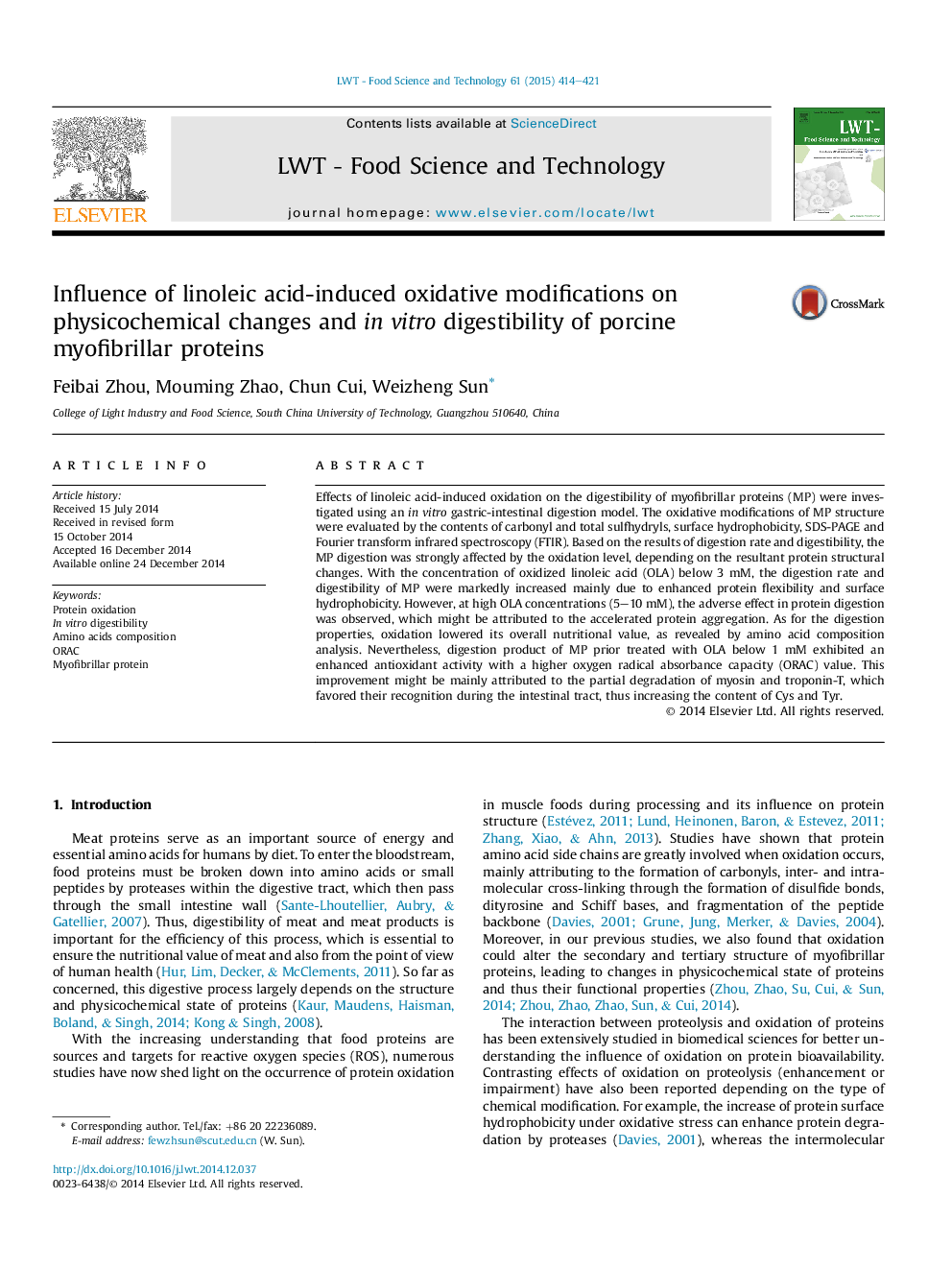| Article ID | Journal | Published Year | Pages | File Type |
|---|---|---|---|---|
| 6401167 | LWT - Food Science and Technology | 2015 | 8 Pages |
Abstract
Effects of linoleic acid-induced oxidation on the digestibility of myofibrillar proteins (MP) were investigated using an in vitro gastric-intestinal digestion model. The oxidative modifications of MP structure were evaluated by the contents of carbonyl and total sulfhydryls, surface hydrophobicity, SDS-PAGE and Fourier transform infrared spectroscopy (FTIR). Based on the results of digestion rate and digestibility, the MP digestion was strongly affected by the oxidation level, depending on the resultant protein structural changes. With the concentration of oxidized linoleic acid (OLA) below 3 mM, the digestion rate and digestibility of MP were markedly increased mainly due to enhanced protein flexibility and surface hydrophobicity. However, at high OLA concentrations (5-10 mM), the adverse effect in protein digestion was observed, which might be attributed to the accelerated protein aggregation. As for the digestion properties, oxidation lowered its overall nutritional value, as revealed by amino acid composition analysis. Nevertheless, digestion product of MP prior treated with OLA below 1 mM exhibited an enhanced antioxidant activity with a higher oxygen radical absorbance capacity (ORAC) value. This improvement might be mainly attributed to the partial degradation of myosin and troponin-T, which favored their recognition during the intestinal tract, thus increasing the content of Cys and Tyr.
Related Topics
Life Sciences
Agricultural and Biological Sciences
Food Science
Authors
Feibai Zhou, Mouming Zhao, Chun Cui, Weizheng Sun,
